history

During a two-hour interview with Tucker Carlson, Darryl Cooper made sensational claims about the Holocaust and World War II, with Carlson calling him “the best and most honest popular historian in the United States.” In this solo episode, Michael Shermer takes a critical look at the pseudohistory and historical revisionism presented by Cooper on Carlson’s show.

Michelle Ainsworth reviews: G-Man: J. Edgar Hoover and the Making of the American Century by Beverly Gage (2022) and The Gospel of J. Edgar Hoover: How the FBI Aided and Abetted the Rise of White Christian Nationalism (2023) by Lerone A. Martin.
A major theme running throughout Ancient Apocalypse is Graham Hancock‘s persecution complex. Archaeologists are picking on him, he says, because “I am trying to overthrow the paradigm of history.” Hancock fails to understand that “just asking questions” is unlikely to create a scientific revolution. Especially when he appeals to a hypothetical comet catastrophe that violates the laws of physics, contradicts astronomical data, ignores the geological record, and defies logic. When scientists ask to see data, it’s not persecution. It’s science.
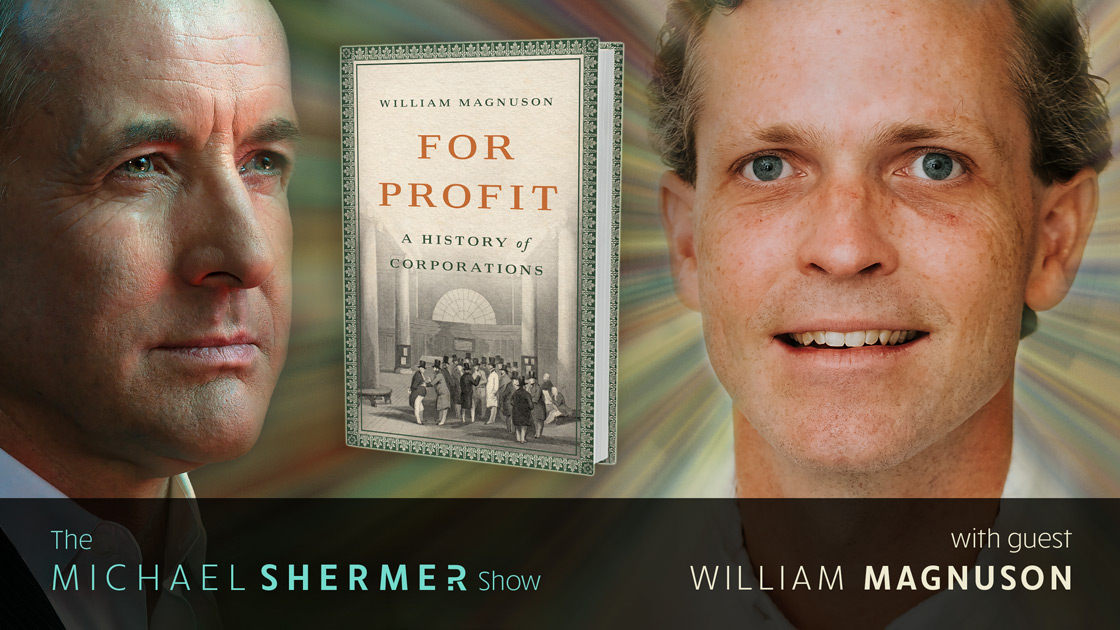
Shermer and Magnuson discuss: corporations and what they are for • LLCs • Roman corporations • medieval economics • banks • guilds • Credit Mobilier scandal • Dutch and British East India Companies • stocks, bonds, joint stock companies • monopolies, duopolies • assembly lines • multinationals • raiders • private equity firms • start-ups • antitrust, trustbusting • bankruptcy • bitcoin, cryptocurrency • Adam Smith’s critique of corporations • profit and market efficiency • slavery and economics • unions.
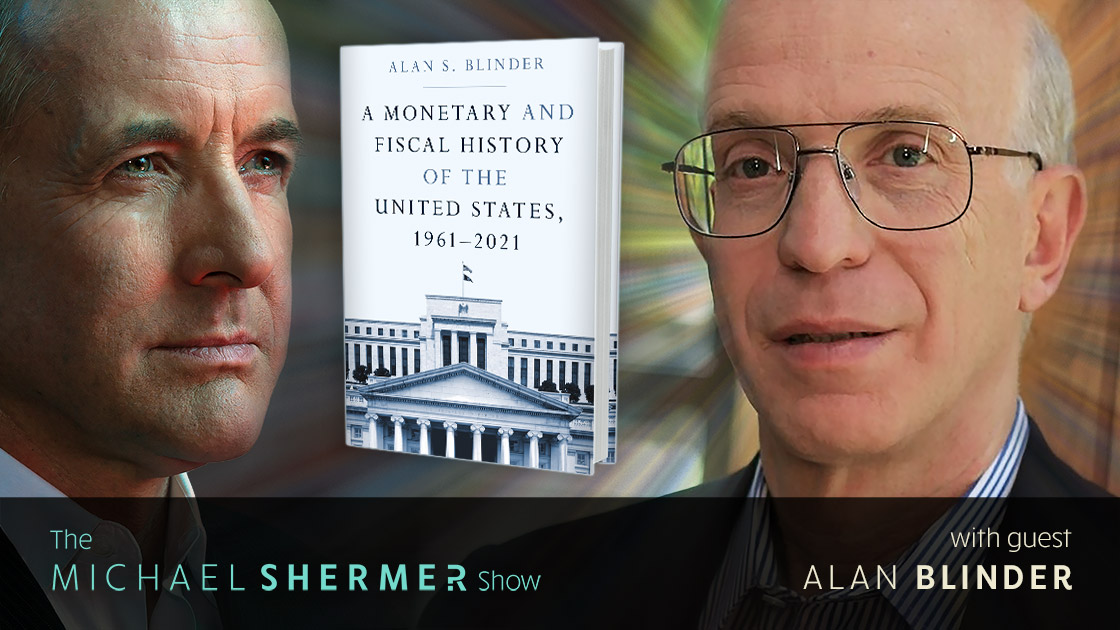
Shermer and Blinder discuss: serving on Bill Clinton’s Council of Economic Advisers • being the Vice Chair of the Federal Reserve Board • What kind of science is economics? • how one’s political leanings influence cause-and-effect economic theories • the difference between monetary and fiscal policy • a Keynesian approach to economics • inflation, stagflation, recessions, depressions, Bull and Bear markets defined • interest rates • the Federal Reserve • the money supply • What makes money valuable without the…

In this review of the new David Copperfield book on the history of magic our Skeptic magic historian and reviewer Michelle Ainsworth offers a concise history of the profession through the lens of the photographer who provided the illustrious photographs for the volume, based on Copperfield’s own museum and collection, including and most noteworthy artifacts from the most famous magician in history, Harry Houdini. Enjoy this gorgeous production through our review.

Holy relics like the Ark of the Covenant, Moses’s Ten Commandment stone tablets, the Holy Grail, the chalice from which Jesus drank at the Last Supper, The Spear of Destiny, and the like, are the stuff of myth, legend, Hollywood movies, and even Nazi villains, but what is the real story behind the myths? In this insightful analysis Skeptic magazine religion editor Tim Callahan reveals what we know and don’t know about these legendary icons.
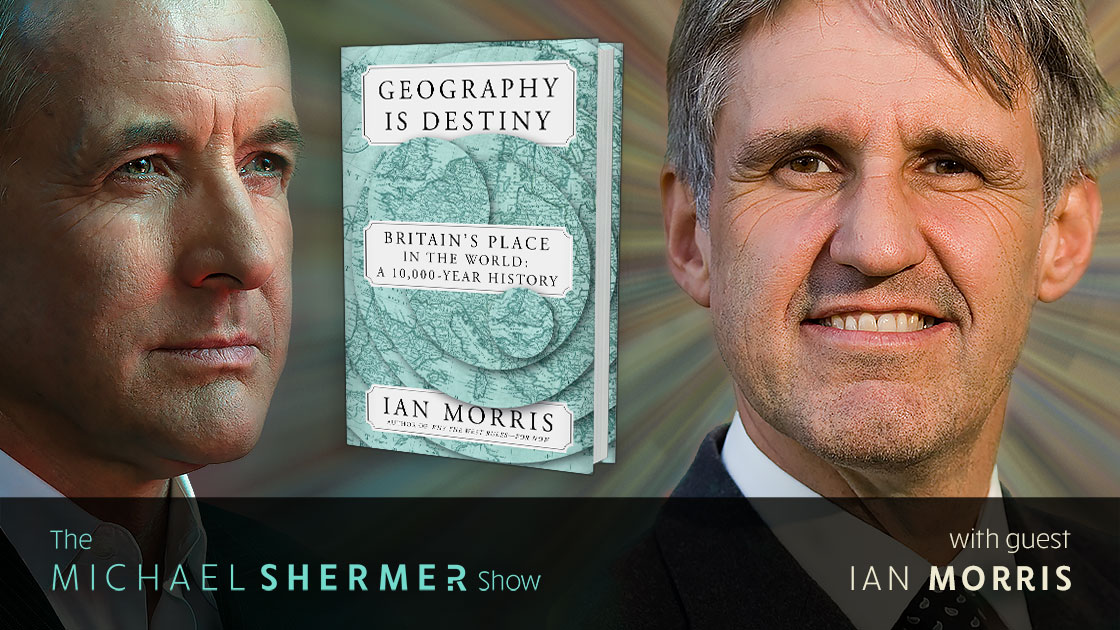
In this conversation on deep time and big history, Shermer and Morris discuss the history of Big History, the future of energy and civilization, China and the future of energy and political power, what Britain was like 8000 years ago, the major transitions in British history, counterfactual history, slavery and the abolition of the slave trade, the role of ideas in history (civil rights, rule of law, justice, etc.), reparations and making right the wrongs of the past.
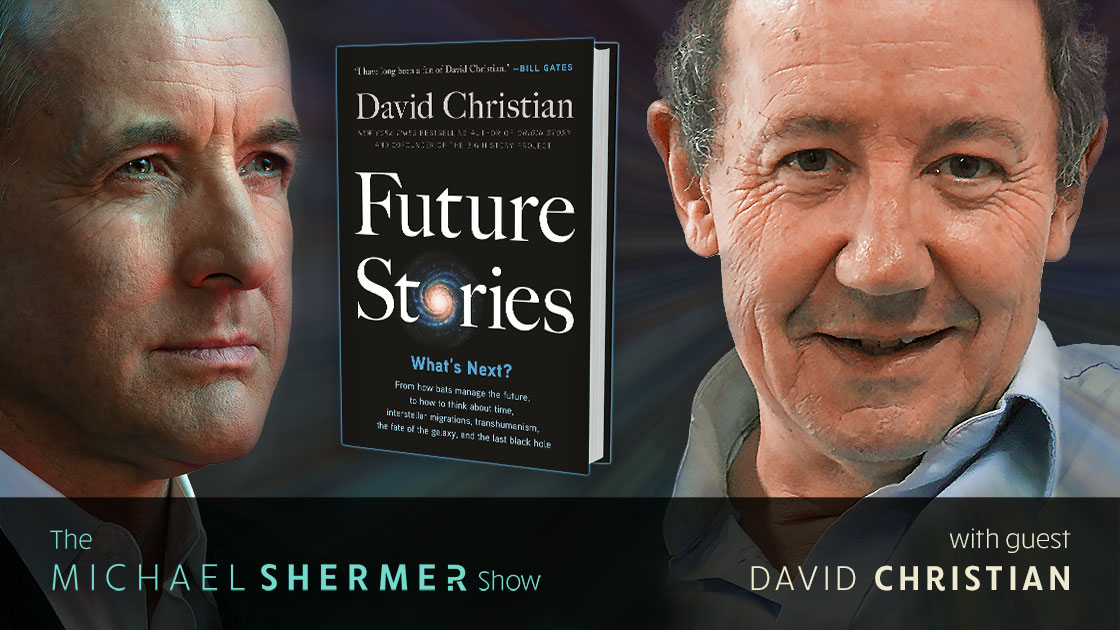
The future is uncertain, a bit spooky, possibly dangerous, maybe wonderful. We cope with this never-ending uncertainty by telling stories about the future: future stories. How do we construct those stories? Where is the future, the place where we set those stories? Can we trust our future stories? And what sort of futures do they show us? David Christian is renowned for pioneering the emerging discipline of Big History, which surveys the whole of the past. In this conversation, he…
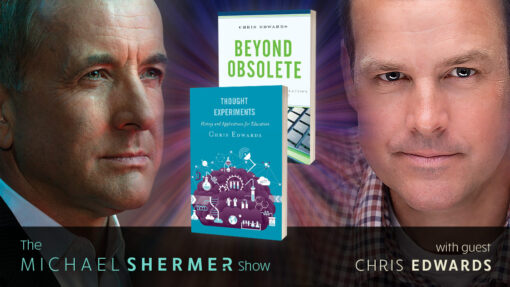
Michael Shermer speaks with Chris Edwards about educational reform, his study and teaching of world history, the problems in K–12 education, the zip-code model vs. the seat time model of education and how they result in massively different educational outcomes, how “no child left behind” left children behind, federal vs. state educational systems, and more…
In episode 193, Michael Shermer speaks with Chris Edwards about educational reform and thought experiments. Plus, Harriet Hall, M.D. discusses osteopathy. What is it? What is the difference between an MD and a DO? Should the DO degree be abolished?

In episode 192, Michael speaks with husband-and-wife team Lesley Newson and Peter Richerson about the deep history of humankind discussed in their book, A Story of Us, in which they present this rich narrative and explain how the evolution of our genes relates to the evolution of our cultures.
In episode 192, Michael speaks with husband-and-wife team Lesley Newson and Peter Richerson about the deep history of humankind discussed in their book, A Story of Us, in which they present this rich narrative and explain how the evolution of our genes relates to the evolution of our cultures.
Jennifer Michael Hecht celebrates doubt as an engine of creativity and as an alternative to the political and intellectual dangers of certainty. This lecture from our archives was recorded in July 2005 as part of The Skeptics Society’s Distinguished Science Lecture Series.
From our Distinguished Science Lecture Series Archives from February 2010, we present Jared Diamond, author of the Pulitzer-prize winning Guns, Germs, and Steel and the bestselling work in environmental history Collapse, revealing for the first time his methodology in the applied use of natural experiments and the comparative method.

In this lecture on Holocaust Denial, Dr. Shermer employs the methods of science to history, showing how we can determine truth about the past.
In this lecture on Holocaust Denial, Dr. Shermer employs the methods of science to history, showing how we can determine truth about the past.

On the 75th anniversary of the liberation of the Auschwitz death camp, Michael Shermer and Alex Grobman present a brief history of how a concentration camp became an extermination center.
On the 75th anniversary of the liberation of the Auschwitz death camp, Michael Shermer and Alex Grobman present a brief history of how a concentration camp became an extermination center.
In a special edition of the Science Salon Podcast Dr. Shermer brought a camera crew to Jared Diamond’s home in Los Angeles for an especially intimate portrait of the man and his theories. You won’t want to miss this conversation, one of the best we’ve yet recorded, with one of the most interesting minds of our time, perhaps of all time.
NEXT →




















